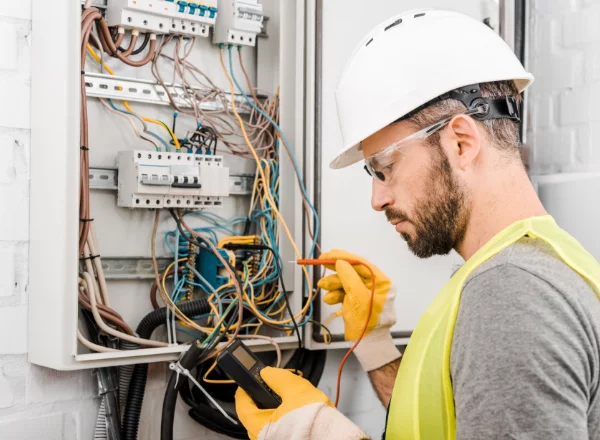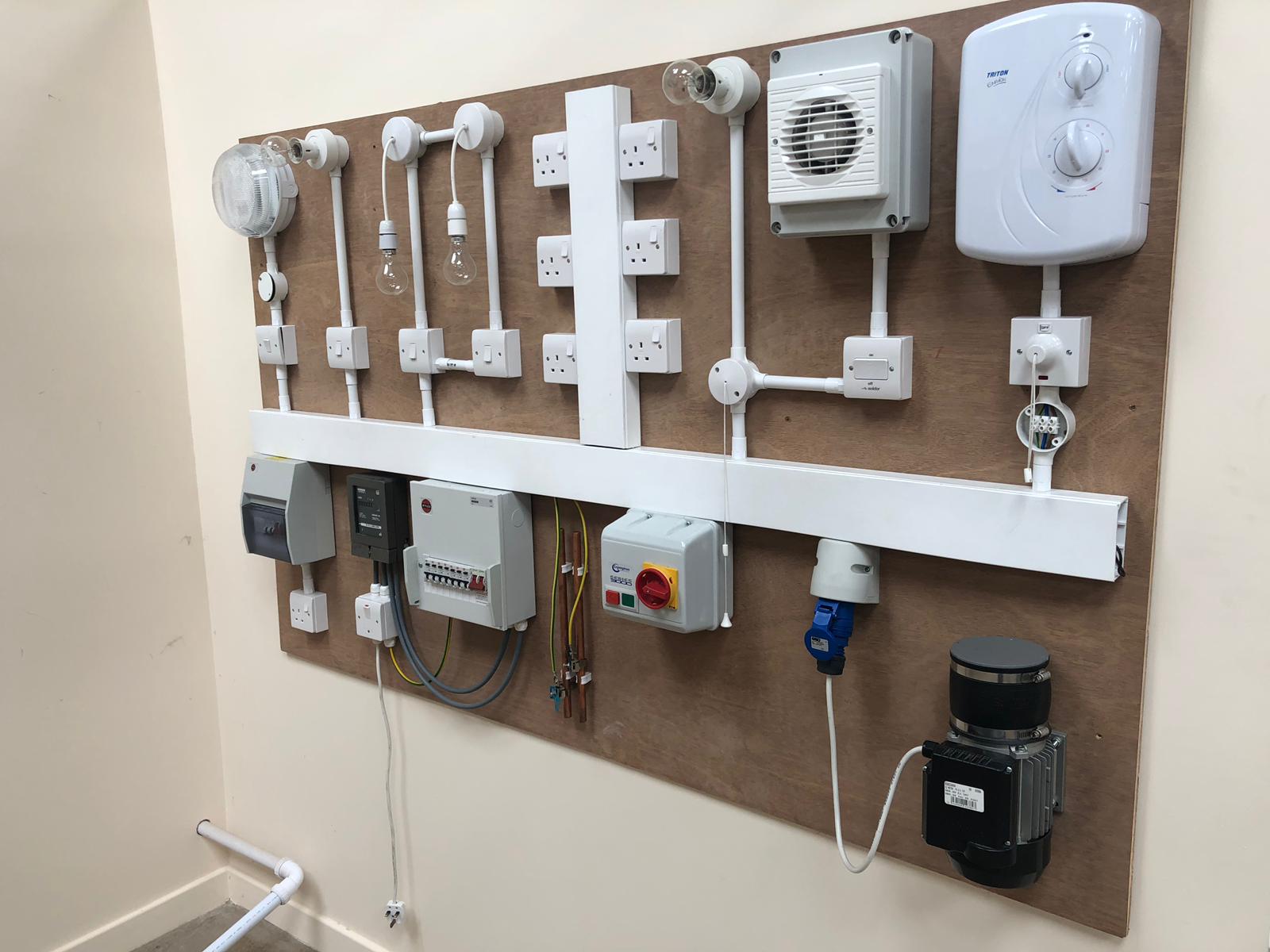Reputable and Specialist BRE Electrical Services for every single Task
Reputable and Specialist BRE Electrical Services for every single Task
Blog Article
Debunking Electrical Installment: Comprehending Codes and Laws for a Lawful and Safe Setup
In the realm of electrical installation, adherence to codes and policies is vital to guarantee both validity and safety and security. The complexities surrounding electrical job can be challenging, however familiarizing oneself with the well-known criteria is crucial to browsing this area with confidence. By understanding the intricacies of the National Electric Code and neighborhood structure codes, people can guarantee that their installations fulfill required precaution and remain in compliance with the law. The trip to demystifying electric installation goes past mere knowledge with policies; it requires an extensive understanding of how to apply risk-free electric methods effectively.
Relevance of Electrical Codes
The adherence to electric codes is essential in ensuring the safety and security and reliability of electrical installments. Electrical codes function as a collection of standards and guidelines that determine the correct design, setup, and maintenance of electrical systems. These codes are developed to minimize the danger of electric hazards, fires, and various other safety and security issues that may occur from malfunctioning electric job.

Moreover, electrical codes are routinely upgraded to include new technologies, ideal methods, and safety measures. Remaining updated with these codes is essential for specialists in the electrical industry to ensure that their job satisfies the most up to date safety and security requirements. Ultimately, the importance of electric codes depends on developing a safe and efficient electric infrastructure that profits both individuals and neighborhoods.
Key Laws for Safety
A number of fundamental guidelines govern the safety and security standards in electric installations. One essential regulation is the National Electrical Code (NEC), which gives guidelines for risk-free electric layout, installment, and evaluation to secure individuals and building from electrical dangers. The NEC covers facets such as wiring techniques, grounding, overcurrent defense, and equipment installation to make sure a secure electric system.
Another important law is the Occupational Safety and Health And Wellness Management (OSHA) criteria, which concentrate on the safety of workers included in electric installations (BRE Automation Australia). OSHA guidelines consist of needs for proper training, security treatments, and individual safety tools to avoid workplace accidents and injuries
Moreover, the International Electrotechnical Payment (IEC) criteria intend to balance electric setup policies on a worldwide scale. These standards address issues like electrical tools safety and security, electro-magnetic compatibility, and power effectiveness to promote uniformity and safety and security in electric setups worldwide.
Compliance with these key regulations is essential to ensure the safety and security and validity of electric installations, protecting both people and property from the risks connected with electricity.
Recognizing National Electric Code
Trick laws such as the National Electric Code (NEC) supply necessary standards for risk-free electrical design, installation, and examination to make certain the defense of people and residential property from electrical risks. The NEC, additionally known as NFPA 70, is a comprehensive set of criteria for electric setups that are updated every 3 years. It is established by the National Fire Protection Organization (NFPA) and is commonly embraced across the USA.
The NEC covers various facets of electrical job, consisting of wiring approaches, grounding, overcurrent security, and equipment setup. It aims to safeguard individuals and residential property by dealing with prospective threats connected with electric systems. Compliance with the NEC is typically implemented by local authorities having jurisdiction (AHJs), such as constructing code officials and assessors.
Recognizing the NEC is vital for electrical specialists, developers, and inspectors to ensure that setups satisfy the needed safety and security needs. By adhering to the NEC guidelines, professionals can help avoid electrical mishaps and make sure the integrity of electric systems in household, business, and commercial setups.

Compliance With Local Building Ordinance
Recognizing and Resources adhering to local structure codes is necessary for making sure the safety and conformity of electrical installments within a certain jurisdiction (BRE Services). Neighborhood building regulations vary from one community to another, and they are established to safeguard the wellness Homepage of occupants and properties. These codes detail particular needs for electrical installations, such as the sort of circuitry to be made use of, placement of electrical outlets, grounding techniques, and lots capabilities. By adhering to local building regulations, electricians can make sure that installations are done properly and fulfill the necessary security criteria.
When it comes to electric setups, failure to comply with local building codes can result in significant effects. Non-compliant installments may position safety and security hazards, raise the threat of electrical fires, and lead to costly penalties or legal concerns.
Making Sure Safe Electrical Practices
Exercising stringent adherence to established safety and security procedures is essential in the area of electric installations to minimize prospective risks and make sure the wellness of people and properties. Security in electrical job encompasses numerous aspects, beginning with the proper training of employees associated with installation, upkeep, and repair. It is important to comply with maker directions thoroughly when handling electrical components and equipment. Prior to starting any work, it is imperative to perform a complete risk evaluation to recognize potential risks and apply safety nets. Making use of personal protective devices (PPE) such as shielded handwear covers, safety glasses, and non-conductive footwear is non-negotiable to guard versus electric shocks and arc flashes. Regular devices assessments, screening, and maintenance schedules are important to identify and rectify faults before they intensify into security you can try these out threats. Furthermore, adherence to proper lockout-tagout procedures during maintenance activities is important to stop accidental energization of circuits. By focusing on secure techniques, electric installments can operate successfully while decreasing the chance of crashes or damages.
Final Thought
Finally, adherence to electrical codes and laws is important for guaranteeing the security and legality of electric setups. Understanding the National Electric Code and conformity with local building ordinance are vital for a safe arrangement. By following these standards and practicing secure electrical techniques, individuals can stop potential threats and guarantee the correct functioning of their electric systems.
Report this page